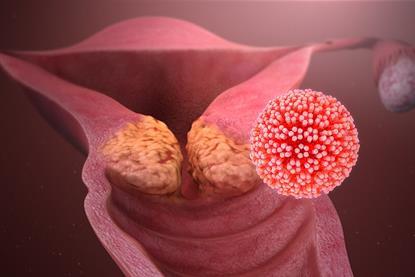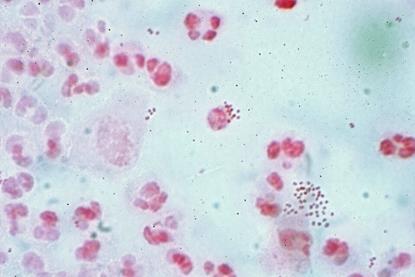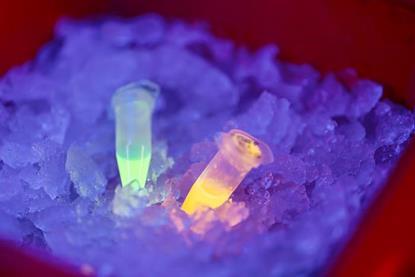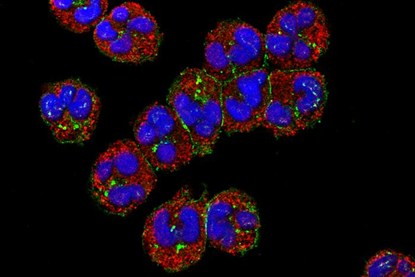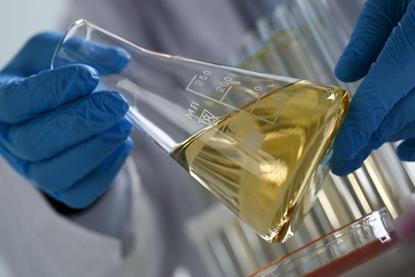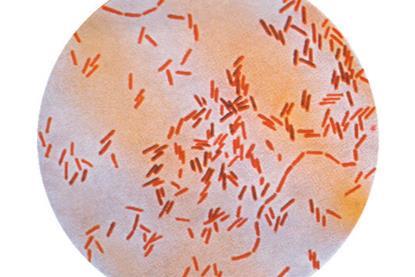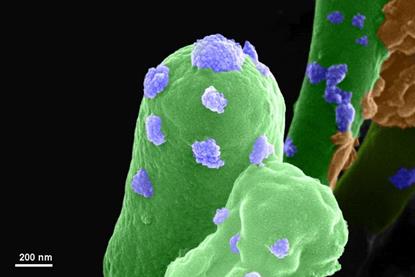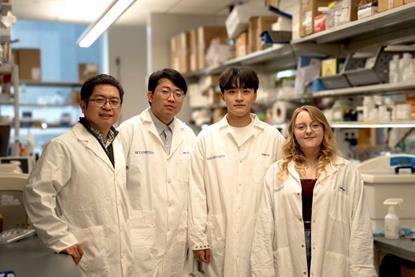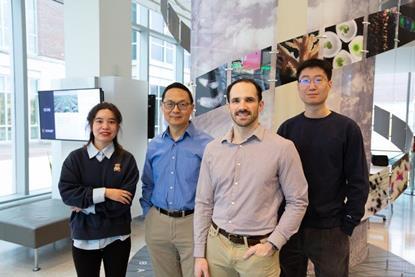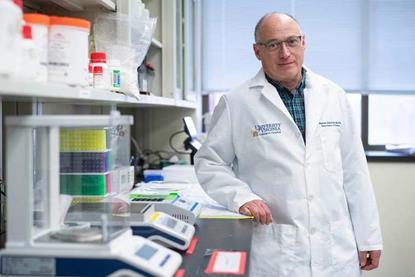Economic Equality
Across the globe there are huge disparities in access to basic services such as healthcare, education, and economic resources, with the UN estimating over 98 million people live on less than $1.90 a day. It is vital for microbial research to identify those areas which actively maintain cycles of poverty and disparity. In recognising the interconnected nature of human financial systems and environmental health, microbial research can be a leader in working toward Economic Equality.
News
Natural dye produced by Amazonian fungus can be used in cosmetics
A red extract made from Talaromyces amestolkiae was tested in the bases of potential products, including face cream, shampoo, and gel sticks, for its antioxidant and antibacterial properties.
Read story- News
How periodontitis-linked bacteria accelerate osteoporosis-like bone loss through the gut
Researchers reveal that salivary bacteria from gum disease alter gut metabolism, driving osteoclast activity and systemic bone loss. They analyzed salivary microbiota from individuals with advanced periodontitis and compared them with samples from periodontally healthy donors.
- News
Algal blooms: New AI algorithm enables scientific monitoring of ‘blue tears’
‘Blue tears’ chasing has become a popular tourism activity along coasts to witness the spectacular natural phenomenon. However, the occurrence and movement of algal blooms are unpredictable - but scientists have developed an innovative real-time video monitoring algorithm named BT-YOLO.
- News
World’s first rum brewed with high ginjo-aroma–producing fission yeast Schizosaccharomyces japonicusponicus
Researchers at Kumamoto University have announced the world’s first rum produced using the fission yeast Schizosaccharomyces japonicus, marking a breakthrough in fermentation science and craft spirits innovation. The new product, “JAPONICUS RHUM AGRICOLE,” goes on sale February 27, 2026.
More Economic Equality
News
People’s gut bacteria worse in areas with higher social deprivation
Living in a poorer neighbourhood in the UK could impact the make-up of your gut microbiome, potentially leading to worse health. New research found that people living in areas of higher social deprivation have a less diverse range of bacteria in their gut.
HPV vaccination provides “sustained protection” against cervical cancer
Human papillomavirus (HPV) vaccination is associated with a significantly reduced risk of invasive cervical cancer, with no indication of waning protection up to 18 years after vaccination, finds a study.
Meningococcal B vaccination does not reduce gonorrhoea, trial results show
Contrary to existing evidence from observational studies, the meningococcal B vaccine (4CMenB) has no effect on preventing the acquisition of gonorrhoea, according to the results of the world’s largest randomised control trial (RCT) into possible efficacy.
New study finds sex and menopause-based differences in presentation of early Lyme disease
In a new study, researchers found that male and female patients with early Lyme disease present with different signs of the disease in the symptoms they report, their physical exams and their laboratory test results.
World Water Day 2026: Book your free place on our Gender Equality and Water webinar
Applied Microbiology International will hold a free webinar on ‘Gender Equality and Water’ to mark World Water Day 2026 - March 18 2026. We’ll be joined by Professor Jiménez Cisneros, an expert in water management, sanitation and sustainable development, and Professor Lyla Mehta, an expert on water, sanitation, gender and development.
Missed opportunity: Study shows low vaccination rates among expectant mothers in Norway against COVID-19 and influenza
A study of over 50,000 pregnant women in Norway during the 2023/24 influenza season found that only 29.9% were vaccinated against influenza and 12.1% against COVID-19 during pregnancy, remaining far below recommended targets.
Global commitment on display as countries negotiate key annex to the Pandemic Agreement
Member States of the World Health Organization (WHO) concluded a weeklong round of negotiations on draft annex for Pathogen Access and Benefit Sharing (PABS) – a key component of the WHO Pandemic Agreement.
Scaling up: Fungus plays key role in crafting spalted wood
A new standardized, scalable process deploys a fungal pest of deciduous trees to create a unique woodworking product - spalted wood, with its distinctive etched black markings.
Living material makes harmful UV light visible – Functional coating made from proteins and bacteria
Researchers have developed a T-shirt coating - using proteins and bacteria - that reliably detects contact with UV-A radiation, is bio‑based, and could open the door to a wide range of new materials that draw on the biological functions of cells.
How food shortages reprogram the immune system’s response to infection
When food is scarce, stress hormones direct the immune system to operate in “low power” mode to preserve immune function while conserving energy. This reconfiguration is crucial to combating infections amid food insecurity.
A standout solvent for today’s biorefineries
Researchers tested multiple distillable amine-based solvents to see how they performed in pretreatment processes for biomass. They found butylamine was a superior solvent.
CARB-X to support development of typhoid fever diagnostic from Chembio
CARB-X is awarding US$1.8 million to Chembio Diagnostic Systems, Inc. to develop a rapid point-of-care test for the detection of Immunoglobulin A (IgA) antibodies to diagnose acute infection of Salmonella enterica serovar Typhi.
Testing menstrual blood for HPV could be “robust alternative” to cervical screening
Testing menstrual blood for human papillomavirus (HPV) could be a “robust alternative or replacement” for current cervical cancer screening by a clinician, finds a study. The researchers say using menstrual blood for HPV testing is convenient and non-invasive.
Green chemistry: Friendly bacteria can unlock hidden metabolic pathways in plant cell cultures
Co-culturing plant cells with harmless bacteria can expand the diversity of obtainable plant-derived compounds for pharmaceuticals, cosmetics, and agrochemicals, a new study shows.
Clinical data gaps keeping life-saving antibiotics from children
Antibiotics that could treat severe infections in babies and children aren’t accessible due to a lack of data around safety and dosage. Of 12 antibiotics recommended for serious bloodstream infections caused by a harmful, Gram-negative bacteria, only six were licensed in children aged under 12 and just three in babies.
How brick-building bacteria react to toxic chemical in Martian soil
Researchers investigated how bacteria that can mould Martian soil into brick-like structures fare in the presence of perchlorate, a toxic chlorine-containing chemical discovered in Martian soil. It slows down bacterial growth - but surprisingly leads to the formation of stronger bricks.
Genetic system makes worker cells more resilient producers of nanostructures
Researchers report the development of a new genetic regulatory system to improve cell viability during the production of gas vesicles.
Researchers enable microorganisms to build molecules with light
Researchers are continually looking for new ways to hack the cellular machinery of microbes to make useful products. A new study shows they can expand the biosynthetic capabilities of these microbes by using light to help access new types of chemical transformations.
New platform could develop vaccines faster than ever before
Scientists are optimizing a vaccine-development platform created to accelerate how quickly life-saving vaccines can be designed and deployed during infectious-disease outbreaks such as the COVID-19 pandemic.





